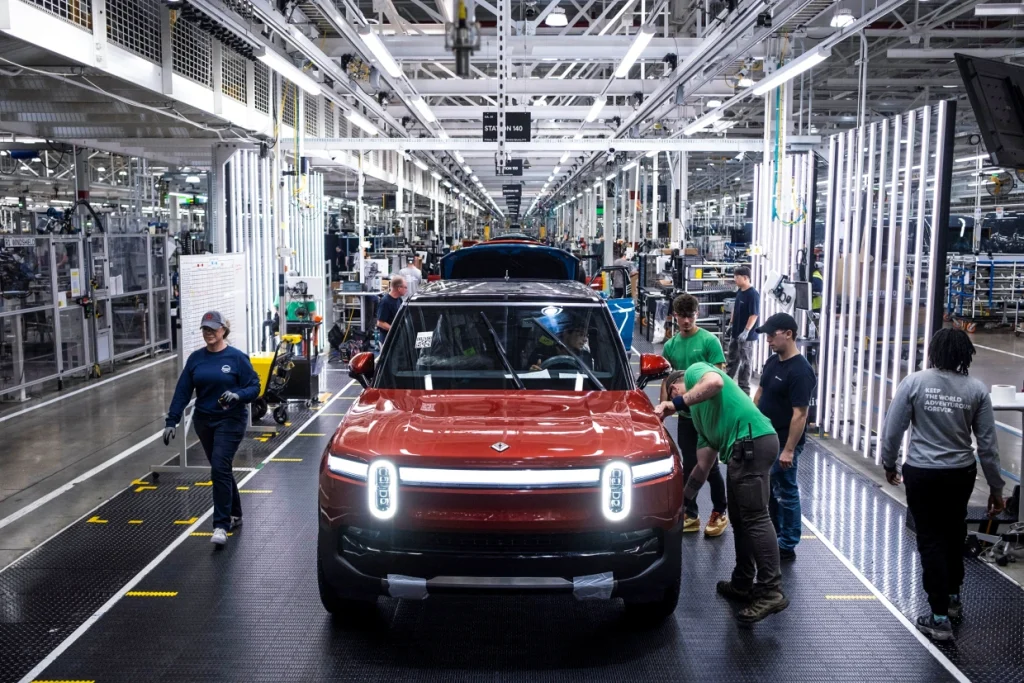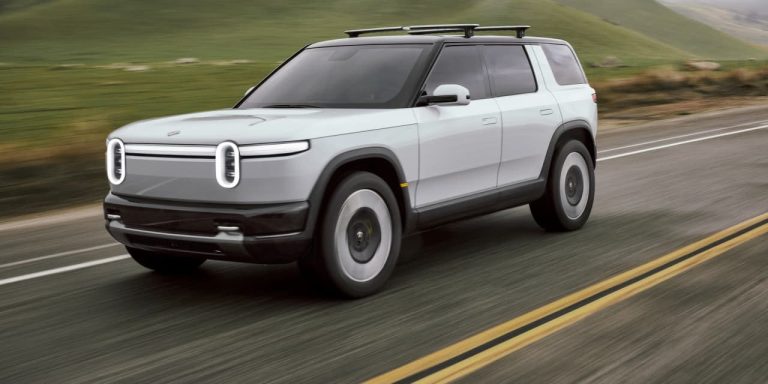Volkswagen has become the second established automaker to acquire a stake in the California-based company.
Volkswagen has announced plans to invest up to $5 billion in the electric vehicle startup Rivian, with an initial infusion of $1 billion. The remaining $4 billion is anticipated to be disbursed by 2026, structured as $1 billion each in 2025 and 2026, and an additional $2 billion in 2026 earmarked for a joint venture focused on developing electric vehicle architecture and software technology. This significant partnership was disclosed in a joint release by both automakers on Tuesday.
Following the announcement, Rivian’s stock surged approximately 40% during after-hours trading on Tuesday, just ahead of an investor event scheduled for later in the week. This boost comes at a critical time for Rivian, which has faced scrutiny from investors due to its substantial cash burn and ongoing financial losses. As of Tuesday’s close, Rivian’s stock price was $11.96 per share, marking a decline of approximately 49% since the beginning of 2024.
Volkswagen’s initial $1 billion investment will take the form of a convertible note, which allows for potential conversion into Rivian shares starting December 1, as stated in the release. Rivian plans to host an investor call to discuss the details of this collaboration at 6 p.m. ET on Tuesday.

This strategic alliance makes Volkswagen the second traditional automaker to acquire a stake in Rivian, following Ford Motor Company’s involvement. Ford, along with Amazon, held substantial stakes in Rivian at the time of its initial public offering in 2021, but Ford divested its position in 2023 after revising its joint electric vehicle development plans with Rivian.
The partnership between Volkswagen and Rivian reflects broader shifts in the automotive industry, driven by slower-than-expected consumer adoption of electric vehicles. It remains unclear how this deal will impact Volkswagen’s existing plans, including its proposed $2 billion investment to establish an electric vehicle manufacturing facility for Scout Motors trucks and SUVs in South Carolina.
Meanwhile, Rivian has been implementing aggressive cost-cutting measures over recent months, including workforce reductions, operational optimizations at its Illinois manufacturing facility, and a pause in the construction of a new factory in Georgia. These efforts are expected to generate savings exceeding $2.25 billion in capital expenditures, factoring in preparations for the production launch of Rivian’s next-generation R2 vehicle at its Illinois plant.
Despite these cost-saving initiatives, Rivian reported a significant loss of $1.45 billion in the first quarter of this year, primarily attributed to plant retooling activities aimed at introducing updated versions of its R1T pickup and R1S SUV electric vehicles ahead of the planned rollout of next-generation models in 2026.
As of the end of March, Rivian reported holding $7.86 billion in cash, cash equivalents, and short-term investments, bolstering its total liquidity to more than $9 billion.

